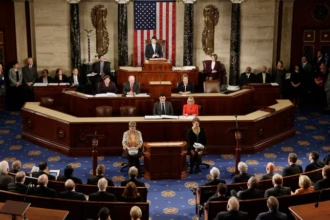The National Bank of Ethiopia’s August 2 public notice accusing four U.S.-based money transfer companies of laundering funds and financing illicit activity marks a sharp escalation in tone from Addis Ababa. The companies, Shgey, Adulis, Ramada Pay (Kaah), and TAAJ, are not marginal actors. They operate in full view of U.S. regulators in cities like Silver Spring, Falls Church, and Minneapolis. They are licensed and fall under the strict scrutiny of the U.S. Treasury and FinCEN.
Ethiopia is not simply targeting informal hawala systems or fringe operators. It is making allegations against companies that are part of the U.S. financial architecture. That alone should raise alarm. But the deeper question is this, why now?
The timing of this accusation is no accident. Ethiopia’s foreign policy position is eroding. Once treated as a strategic partner by the United States and the European Union, it now finds itself on shakier ground. The war in Tigray, continued reports of internal repression, and concerns about the centralization of power have eroded the goodwill that Prime Minister Abiy Ahmed once enjoyed.
In Washington, frustration is rising, so is the interest in recalibrating U.S. policy in the Horn. What once seemed like an unshakable alliance with Addis Ababa is now less certain. Reports suggest President Donald Trump is re-engaging with Eritrean President Isaias Afwerki. There are credible indications that normalization of relations between Washington and Asmara is being quietly explored. That would represent a seismic realignment. Eritrea has long been isolated by the West. If that door opens, it could threaten the regional dominance Ethiopia has relied on since the fall of the Derg regime.
Addis Ababa sees this and is clearly uncomfortable. The central bank’s statement cannot be divorced from this geopolitical context. This is not a financial complaint, it is a political maneuver. A warning to the diaspora, a message to Washington, a defensive signal from a leadership nervous about its standing in a changing region.
Critically, Ethiopia has provided no evidence to support its claims. No financial reports, no criminal investigations, no documentation. Just a press release with the names of long-standing businesses that operate under U.S. law. If these firms were violating American regulations, U.S. enforcement agencies would have already acted.
By airing these allegations in public without legal basis, Ethiopia is taking a risky path. It casts doubt on the companies that Somali, Eritrean, Ethiopian, and other Horn communities rely on to support families back home. It also risks undermining trust in the U.S. financial system. The implication, deliberate or not, is that the U.S. Treasury has failed in its regulatory duties. That is a bold charge for a developing country to make against the world’s most powerful financial authority.
But the real target may not be the U.S. government. It may be the diaspora itself. These remittance channels represent economic independence, political voice, and, in some cases, opposition funding. Controlling these flows allows the government to exert pressure beyond its borders. Accusing the operators of illicit activity serves both to intimidate and discredit them.
It is a tactic that carries great risk. Many in the diaspora will view it as an assault on their livelihoods and their families. U.S. regulators may see it as an unfounded attack on American institutions. The reputational damage to Ethiopia could be lasting.
If Ethiopia had real concerns about these companies, the responsible step would be to quietly coordinate with U.S. authorities. That is how serious governments handle sensitive financial matters. Public statements filled with vague, politicized accusations only erode credibility and signal desperation.
Ethiopia is not acting from a position of strength. This move suggests insecurity, not confidence. A regional power that believes in its place does not resort to ambush press releases and diplomatic theatrics. It builds coalitions. It engages through process. It respects the systems it claims to be part of.
Addis Ababa still has a chance to correct course. But that means abandoning the politics of provocation and embracing the demands of diplomacy. If Ethiopia wants to preserve its role as a central actor in the Horn, it must act like one.
Weaponizing a central bank to lash out at foreign institutions is not strategy, it is a red flag. And the world is paying attention.













